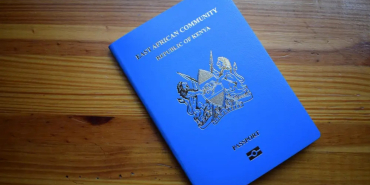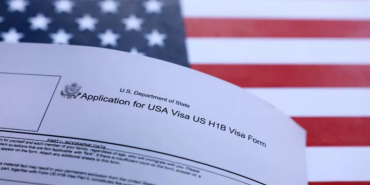Ethiopia Surpasses Kenya in US Citizenship and Permanent Residency Numbers

Recent data from the Migration Policy Institute has revealed a notable trend in the acquisition of US permanent residency status and naturalized citizenship among African nationals.
Specifically, Ethiopians have consistently outpaced Kenyans in obtaining these statuses from 2004 to 2022. The disparity is particularly evident in the number of individuals granted permanent residency status. In most fiscal years, Ethiopian nationals have been awarded this status at a rate nearly double that of their Kenyan counterparts. For example, in fiscal year 2005, 10,571 Ethiopians gained US permanent residency, compared to 5,347 Kenyans. This pattern persisted in subsequent years, with 16,152 Ethiopians and 8,779 Kenyans achieving this status in 2006, and 14,266 Ethiopians versus 7,421 Kenyans in 2010.
While the gap has slightly narrowed in recent years, the trend continues. In 2021, 3,706 Ethiopian nationals became permanent residents in the US, compared to 3,088 Kenyan nationals. The following year saw 5,720 Ethiopians and 5,014 Kenyans attain this status. The Diversity Visa Lottery Green Card program serves as the primary avenue for obtaining permanent residency in the United States. However, other pathways, such as family and employer sponsorships, also contribute to the overall numbers and variations observed. This trend extends to the acquisition of US citizenship through naturalization.
In 2022, 10,858 Ethiopian nationals who held US permanent residency status became naturalized citizens, while the figure for Kenyan nationals stood at 6,090. The disparity was even more pronounced in earlier years, with 8,698 Ethiopians becoming naturalized US citizens in 2009, compared to 2,546 Kenyans. Several factors contribute to these disparities. The most significant is the population difference between the two countries. Ethiopia's population of approximately 132 million is more than double Kenya's 56.2 million, providing a larger pool of potential applicants for US permanent residency and citizenship.
The number of applications submitted and the allocation of visas by the US government also play crucial roles. Ethiopia's larger population likely results in a higher number of applications, potentially influencing the number of successful applicants. Political and economic conditions in each country further impact these trends. Ethiopia has experienced significant political instability and conflict in recent years, potentially driving more individuals to seek permanent residency and citizenship in the US. The US government has extended and redesignated Ethiopia for Temporary Protected Status due to ongoing armed conflict and extraordinary conditions, allowing Ethiopian nationals already in the US to apply for temporary protection from deportation and employment authorization.
In contrast, Kenya, while facing its own challenges, has not experienced the same level of conflict and instability as Ethiopia. This difference in conditions may result in fewer Kenyans seeking permanent residency and citizenship in the US compared to Ethiopians.














Comments
What is the meaning if this…
Permalink
What is the meaning if this report?
That's there business.
Apart from long distance…
Permalink
Apart from long distance field events, I didn't know we are also competing with Ethiopians on which country is sending more immigrants to the US.
Add new comment